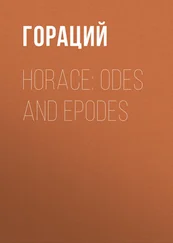Horace Walpole - Horace Walpole and his World
Здесь есть возможность читать онлайн «Horace Walpole - Horace Walpole and his World» — ознакомительный отрывок электронной книги совершенно бесплатно, а после прочтения отрывка купить полную версию. В некоторых случаях можно слушать аудио, скачать через торрент в формате fb2 и присутствует краткое содержание. Жанр: foreign_prose, foreign_antique, на английском языке. Описание произведения, (предисловие) а так же отзывы посетителей доступны на портале библиотеки ЛибКат.
- Название:Horace Walpole and his World
- Автор:
- Жанр:
- Год:неизвестен
- ISBN:нет данных
- Рейтинг книги:4 / 5. Голосов: 1
-
Избранное:Добавить в избранное
- Отзывы:
-
Ваша оценка:
- 80
- 1
- 2
- 3
- 4
- 5
Horace Walpole and his World: краткое содержание, описание и аннотация
Предлагаем к чтению аннотацию, описание, краткое содержание или предисловие (зависит от того, что написал сам автор книги «Horace Walpole and his World»). Если вы не нашли необходимую информацию о книге — напишите в комментариях, мы постараемся отыскать её.
Horace Walpole and his World — читать онлайн ознакомительный отрывок
Ниже представлен текст книги, разбитый по страницам. Система сохранения места последней прочитанной страницы, позволяет с удобством читать онлайн бесплатно книгу «Horace Walpole and his World», без необходимости каждый раз заново искать на чём Вы остановились. Поставьте закладку, и сможете в любой момент перейти на страницу, на которой закончили чтение.
Интервал:
Закладка:
This was not the only occasion on which Walpole showed himself capable of uncommon generosity. He made a similar offer to Madame du Deffand, when she was threatened with the loss of her pension. That clever leader of French society was not, like Conway, a connexion of long standing, but a mere recent acquaintance of Horace, who had no claim on him beyond the pleasure she had shown in his company, and the pity which her blind and helpless old age demanded. In the event, the lady did not require his assistance, but her letters prove that she had full confidence in his intentions, notwithstanding the harshness with which he sometimes repressed her expressions of affection. The same temperament which made him fond of displaying his intimacy with Conway, caused him to dread the ridicule of being supposed to have an attachment for the poor old Marquise. Hence arose the occasional semblance of unkindness, which was contradicted by substantial proofs of regard, and which must be set down to undue sensitiveness on the gentleman’s side rather than to want of consideration.
The coldness of heart with which Walpole is reproached has, we think, been exaggerated. “His affections were bestowed on few; for in early life they had never been cultivated.” So much is admitted by Miss Berry, a most favourable witness. But in society generally, Horace appears to have shown himself friendly and obliging. His aristocratic pride did not prevent him from mixing freely with persons much his inferiors in station. Miss Hawkins, daughter of the historian of music, who for many years lived near him at Twickenham, testifies to his sociable and liberal temper; and Walpole’s own letters show that he was at some trouble to assist Sir John Hawkins in collecting materials for his work. The correspondence between Horace and his deputies in the Exchequer proves the kindly feeling that subsisted between him and them; and also reveals the fact that he employed them from time to time in dispensing charities which he did not wish to have disclosed. And Miss Berry records that, during his later life, although no ostentatious contributor to public charities and schemes of improvement, the friends in whose opinion he could confide had always more difficulty to repress than to excite his liberality.
His temper, says Sir Walter Scott, was precarious. Walpole, we believe, would readily have pleaded guilty to this charge. That he felt his infirmity in this respect his Letters sufficiently show; he assigns it as the chief reason why he preferred to live alone. Gray was not the only one of his early friends with whom he quarrelled. He became estranged at different times from Ashton, another college companion; from Bentley, whose taste and talent he had employed in decorating his Castle; from George Montagu, 15 15 Son of Brigadier-General Edward Montagu, and nephew to the second Earl of Halifax. He was member of Parliament for Northampton, usher of the Black Rod in Ireland during the lieutenancy of the Earl of Halifax, ranger of Salsey Forest, and private secretary to Lord North when Chancellor of the Exchequer.
who, next to Conway, was long his most intimate friend; and from Mason the poet; not to mention other names. Whatever blame may attach to Walpole for these ruptures, it seems to be now pretty well agreed that in the matter of Chatterton he was guiltless. On this subject, we need only quote a few sentences from Scott. “His memory,” says Sir Walter, “has suffered most on account of his conduct towards Chatterton, in which we have always thought he was perfectly defensible. That unhappy son of genius endeavoured to impose upon Walpole a few stanzas of very inferior merit, as ancient; and sent him an equally gross and palpable imposture under the shape of a pretended ‘List of Painters.’ Walpole’s sole crime lies in not patronizing at once a young man who only appeared before him in the character of a very inartificial impostor, though he afterwards proved himself a gigantic one. The fate of Chatterton lies, not at the door of Walpole, but of the public at large, who two years, we believe, afterwards were possessed of the splendid proofs of his natural powers, and any one of whom was as much called upon as Walpole to prevent the most unhappy catastrophe.” 16 16 Had Chatterton appealed simply to Walpole’s charity, he would not have been rejected. This was the opinion of those who knew Horace best. But, apart from the imposture sought to be palmed on him, Walpole did not profess to be a patron of literature or the arts. An artist has pencils, he would say, and an author has pens, and the public must reward them as it sees fit.
We turn from Walpole’s life and character to his Letters. We have already mentioned the friends to whom the earlier portion of these were chiefly addressed. Other friends to whom he occasionally wrote were Lord Hertford, Conway’s elder brother, Lord Strafford, Cole, the antiquary of Cambridge, and John Chute, with whom he had been intimate at Florence. The names of some later correspondents will appear as we proceed, of whom such an account as may seem necessary will be given as they come before us. Of the pains and skill with which the matter of each letter is adapted to the person for whom it was intended, our readers will be able to judge for themselves. That the author had studied letter-writing as an art, is a remark almost too trivial to be repeated. It is hardly too much to say that he made it his chief literary business. “Mine,” he said, “is a life of letter-writing.” That he counted on being remembered by his letters far more than by any other of his writings, we hold to be as certain as any statement of the kind can be. He had, we believe, gauged his powers far more correctly than is commonly supposed, and was satisfied that in this kind of composition, more than in any other, he had produced something of permanent value. He had studied closely the letters of Gray and Madame de Sévigné, and formed his own style from them. The letters of the latter were his especial delight. He read them over until they became part of his own mind. Nothing interested him so much as a rumour that some fresh letters of “Notre Dame des Rochers” had been discovered. It may be too much to say, as Miss Berry has said, that Walpole has shown our language to be capable of all the graces and all the charms of the French of the great writer whom he imitated. But, due allowance made for the superiority of French idiom and French finesse in a department where they appear to most advantage, it may safely be affirmed that, if variety and interest of topics be regarded as well as style, Walpole’s letters are unrivalled. It was only by degrees that Horace attained to the perfection of easy engaging writing. His earlier letters betray signs of considerable labour. It is said that a summary prepared beforehand of one of his letters to Montagu was found in looking over some of his correspondence. In later days he wrote with the greatest facility, even carrying on a conversation the while. But he continued to the last the habit of putting down on the backs of letters or slips of paper, a note of facts, of news, of witticisms, or of anything he wished not to forget for the amusement of his correspondents.
CHAPTER II
Country Life.—Ranelagh Gardens.—The Rebel Lords.—The Earthquake.—A Frolic at Vauxhall.—Capture of a Housebreaker.—Strawberry Hill.—The Beautiful Gunnings.—Sterne.
We pass over such of Walpole’s letters as were written before his return from his travels. They are interesting chiefly as parts of a correspondence carried on by four young men of talent—Gray, West, Ashton, and Horace himself—who, having been schoolfellows, had formed what they called a quadruple alliance; and it must be owned that Walpole in this correspondence shines less than Gray, who appears to have been the mentor of the group, and less, too, perhaps than West, whose early death disappointed great hopes. We omit, besides, all reference to the letters in which Horace described the great Walpolean battle, and traced the fortunes of the Broad Bottom Administration. And, with few exceptions, his accounts of later political events have also been excluded. The additions which his gossiping chronicles have made to our knowledge of these matters have been incorporated in most recent histories of the period; the extracts given in the present volume are designed, as a rule, to illustrate the history of manners rather than of politics.
Читать дальшеИнтервал:
Закладка:
Похожие книги на «Horace Walpole and his World»
Представляем Вашему вниманию похожие книги на «Horace Walpole and his World» списком для выбора. Мы отобрали схожую по названию и смыслу литературу в надежде предоставить читателям больше вариантов отыскать новые, интересные, ещё непрочитанные произведения.
Обсуждение, отзывы о книге «Horace Walpole and his World» и просто собственные мнения читателей. Оставьте ваши комментарии, напишите, что Вы думаете о произведении, его смысле или главных героях. Укажите что конкретно понравилось, а что нет, и почему Вы так считаете.












